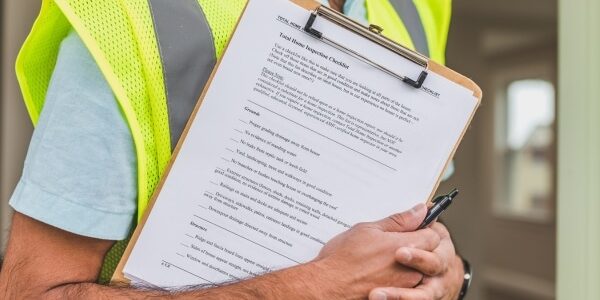Understanding due diligence obligations for WHS officers

As a workplace health and safety (WHS) officer, your role is integral to maintaining a safe and compliant work environment. But what exactly does this role entail? This article will provide an overview of the due diligence obligations for WHS officers, focusing on what is required by law and the steps you can take to ensure your business is compliant.
What is a WHS officer?
Generally, a WHS officer is someone who makes, or participates in making, significant decisions that affect the whole or a substantial part of the business, or who has the capacity to significantly affect the business’s financial standing.
A WHS officer is responsible for enforcing health and safety laws, resolving disputes, investigating accidents, and promoting healthy workplace practices. The specific duties of a WHS officer vary depending on the industry, but regardless of the sector, the core responsibility is to ensure the safety and well-being of workers and others in the workplace.
What are the duties of a WHS officer?
While state and territory WHS legislation can vary, WHS officers will typically have a duty to ensure that the business complies with and meets its duties under the applicable WHS legislation. WHS officers are required to do this by exercising ‘due diligence’.
Some reasonable steps that can be taken by a WHS officer to demonstrate due diligence may include (but is not limited to):
- Maintaining an up-to-date knowledge of WHS laws in the jurisdiction that the business operates in;
- Understanding the hazards and risks associated with the operations the business undertakes;
- Ensuring the business is properly resourced to manage WHS risks and verify that resources are being used effectively; and
- Ensuring the business has effective reporting processes for incidents, hazards, and other WHS concerns, and that these processes are being followed.
Can the duties of a WHS officer be transferred?
In short, no. A WHS officer cannot transfer their duties to another person, and they will ultimately remain responsible. Although, they may delegate tasks and seek assistance from others from time to time.
In circumstances where there are multiple WHS officers that exist within one business, each WHS officer will share the responsibility but must independently fulfill their own duties.
Do paid WHS officers have the same responsibilities as a volunteer WHS officer?
Regardless of whether the WHS officer has been engaged on a paid or volunteer basis, they will still hold the same due diligence duties. For clarity, anyone who fits the definition of an ‘officer’ under section 9 of the Corporations Act 2001 (Cth) (Corporations Act) will be required to comply with their WHS obligations.
Will a “safety officer” have the same responsibility as a WHS officer?
Simply being designated a “safety officer” does not automatically make that person a WHS officer. In order to be a WHS officer, the person must meet the definition of ‘officer’ under the Corporations Act, which is based on their role and influence in the business.
What are the consequences of non-compliance?
WHS officers are legally responsible for proactively fulfilling their due diligence obligations and can be held personally liable, and prosecuted under WHS legislation, where they fail to ensure the business has suitable resources and systems to manage workplace risks.
Learn More
NRA Legal regularly facilitates training on a range of topics, including work health and safety, and can design tailored workshops to assist leadership and executive teams to better understand their duties as WHS officers.
If you would like to learn more about the due diligence duties of a WHS officer, or our range of services, please call our Workplace Relations Hotline on 1800 RETAIL (738 245) for a confidential conversation.
Contact our team today




